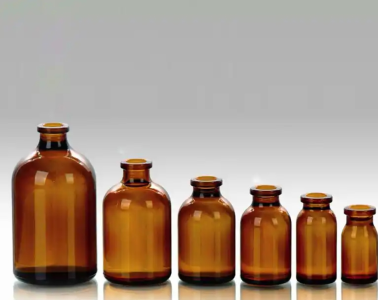文献:血清热灭活降低 ApoE 介导的 D-Lin-MC3-DMA 脂质纳米颗粒的摄取
链接:https://www.beilstein-journals.org/bjnano/articles/16/57
作者:德米安·范斯特拉滕, 卢克·范德·谢波普, 罗文·弗朗特, 彼得·维德和 雷蒙德·M·希弗勒斯
节选:
抽象的
纳米粒子在药物递送研究中发挥着至关重要的作用。纳米粒子给药后在其表面形成的蛋白质冠因其对其性能的显著影响而备受关注。脂质纳米粒子 (LNP) 依赖蛋白质冠的形成来实现其靶向性。此类蛋白质-纳米粒子相互作用通常*初使用体外细胞模型进行研究,旨在*终了解 LNP 在体内的生物分布和载药递送效率。在体外细胞培养中,通常会在培养基中添加胎牛血清 (FCS) 以提供营养并促进细胞活力和生长。通常对 FCS 进行热灭活以防止补体系统激活。然而,该过程对蛋白质冠形成以及进而对 LNP 功能的影响尚不清楚。本文,我们研究了血清热灭活对含有 D-lin-MC3-DMA (MC3) 或 C12-200 (C12) 可电离脂质的 LNP 中蛋白质冠形成的影响。在含有未处理或热灭活血清的培养基中,测定了LNP的细胞摄取和siRNA递送效率。从机制上讲,我们发现载脂蛋白E(一种对MC3 LNP趋向性至关重要的蛋白冠成分)在FCS热灭活后稳定性和功能性降低,从而对MC3 LNP的摄取和货物递送产生负面影响,但对C12 LNP则无影响。我们的研究结果强调了体外实验中被忽视的因素的重要性,这些因素可能会无意中影响LNP的性能。这些发现有助于改进体外研究蛋白冠形成的方案,并防止LNP开发中的偏差。

Abstract
Nanoparticles play a crucial role in drug delivery research. The protein corona that develops on the surface of nanoparticles after administration has garnered substantial attention due to the significant effects it has on their performance. Lipid nanoparticles (LNPs) depend on protein corona formation to mediate their targeting. Such protein–nanoparticle interactions are often initially studied using in vitro cellular models aiming to eventually understand biodistribution and cargo delivery efficiency of the LNPs in vivo. For in vitro cell culture, fetal calf serum (FCS) is supplemented to culture media to provide nutrients and promote cell viability and growth. Heat inactivation of FCS is often performed to prevent complement system activation. However, the effect of this process on protein corona formation and, in turn, LNP functionality is unclear. Here, we investigated the effects of serum heat inactivation on protein corona formation on LNPs containing D-lin-MC3-DMA (MC3) or C12-200 (C12) ionizable lipids. Cellular uptake and siRNA delivery efficiency of the LNPs were determined in media containing untreated or heat-inactivated serum. Mechanistically, we found that apolipoprotein E, a protein corona component that is crucial for MC3 LNP tropism, displayed reduced stability and functionality upon heat inactivation of FCS, thereby negatively influencing uptake and cargo delivery of MC3 LNPs, but not C12 LNPs. Our results underline the importance of overlooked factors in in vitro experiments that can inadvertently affect LNP performance. These findings can help to improve protocols to study protein corona formation in vitro and prevent bias in LNP development.
西安齐岳生物提供相关产品:
DPPE-PEG-COOH
DSPE-PEG-Glutamic acid
mPEG-DEPE
ICG-PEG-DLPE
DSPE-MAL,DSPE-Maleimide
DSPE-PEG-RVG29 二硬脂酰基磷脂酰乙醇胺-聚乙二醇-狂犬病病毒肽
DSPE-PEG2K-RVG29
以上文章内容来源各类期刊或文献,如有侵权请联系我们删除!




 齐岳微信公众号
齐岳微信公众号 官方微信
官方微信 库存查询
库存查询